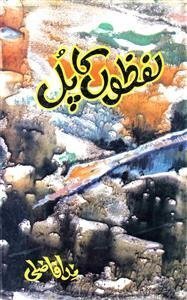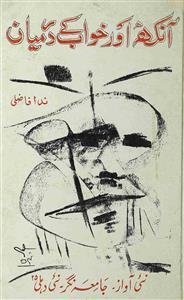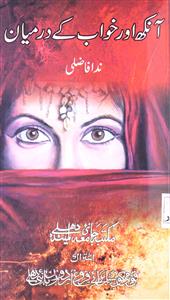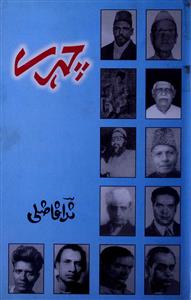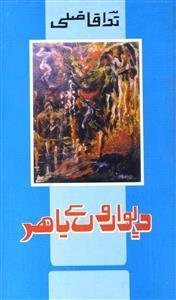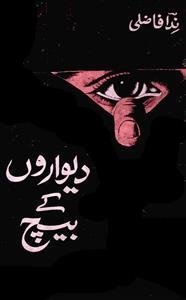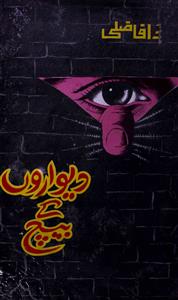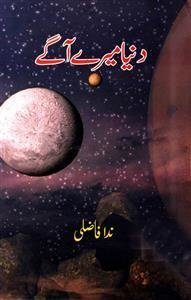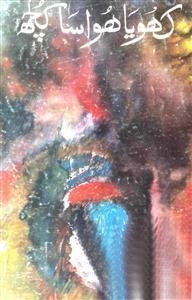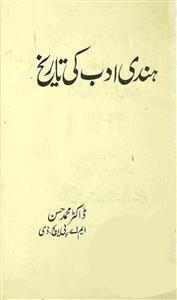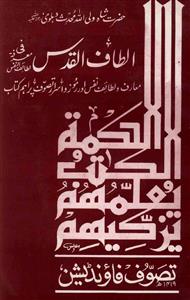 For any query/comment related to this ebook, please contact us at haidar.ali@rekhta.org
For any query/comment related to this ebook, please contact us at haidar.ali@rekhta.org
About The Book
ندا فاضلی ہمارے عہد کے ان ممتاز شاعروں میں سے ہیں جن کی تخلیقات نے بعد کی نسل کو بےحد متاثر اور متوجہ کیا ہے۔ ان کی شاعری سے اردو میں ایک نیا شعری محاورہ وجود میں آیا ہے۔ انہوں نے اس بھولی بسری لسانی وراثت (خسرو، میرا، کبیر، رحیم، سورداس وغیرہ) سے رشتہ جوڑنے کی کامیاب کوشش کی ہے جسے لوگ بھول گئے تھے۔ ندا نے نہ صرف اس وراثت کی بازیافت کی ہےبلکہ اس وراثت میں موجود عہد کی لسانی ذہانت جوڑ کے اردو کے شعری ادب میں نئے امکانات کی نشاندہی کی ہے۔لفظوں کا پل ندا فاضلی کا پہلا شعری مجموعہ ہے ۔ ان کے اس مجموعہ میں قصباتی معصومیت اور سادگی ملتی ہے۔
About The Author
Nida Fazli was a writer, poet, songwriter, dialogue writer and journalist of Urdu and Hindi who gave Urdu poetry a tone and style which was seldom considered by the elites of Urdu literature before him. Nida Fazli was born in Delhi on October 12, 1938. His real name was Muqtada Hassan. His father Murtaza Hassan was a poet and his pseudonym was Dua Dabaiwi. Which created a passion for poetry in Nada from a young age. He received his early education in Gwalior and obtained MA degrees in Urdu and Hindi from Vikram University, Ujjain. After that, Nida’s father decided to move to Pakistan. Nida ran away from home and did not go to Pakistan. After being separated from his family, Nida continued his struggle alone. And he spent his time only in reading and poetry. While scoring through the poetry universe, he realized that there is one thing lacking in the poetic capital of Urdu and that is that such poetry is fun to listen to but it does not support individual emotions. His restlessness reached a crescendo when one of his college girls, Miss Tandon, who had become emotionally attached to him, died in an accident. Nida was very shocked by this but he could not find a single poem in the treasure of Urdu literature to side with his grief. He found an expression to his emotion in one of Surdas’s poems, and that is where he found his own diction, accent, and tone.
A new poetic idiom of Urdu came into existence in his poetry which attracted and influenced the new generation. His expression is as simple as the adages of the saints, possessing a poetic glory and sweetness like folk songs. He addresses common people in and through his poems. He not only retrieved the Sant-tradition but also pointed out new possibilities in Urdu prose literature by adding contemporary linguistic intelligence. About his poetry, Nida asserted, “My poetry not only values the relationship between literature and its readers, but also makes its social context its standard. My poetry is about moving out of closed rooms and moving on with life."
After graduating, he stumbled for a few days in Delhi and elsewhere in search of work and then moved to Bombay in 1964. In Bombay, he had to struggle hard at first. He read magazines like Dharmayug and Blitz and worked in newspapers. At the same time, he became known in the literary circles. He had written most of the poems, lyrics and songs of his first collection of poems “Lafzon Ka Pul” before coming to Bombay and people were attracted to his fresh expression. This book came out in 1971 and was an instant hit. He also became a popular lyricist, his connection with the film industry started when Kamal Amrohi directed his film Razia Sultan and let him write two songs in it. After that, he started working as a lyricist and dialogue writer in various films. However, he did not have a success like that of a Sahir, Majrooh, Gulzar or Akhtarul Iman.
Later many of his poetry collections made the scene like ‘Mor Nach’, ‘Ankh aur Khwab Ke darmiyan’, ‘Shahr tu mere sath chal’, ‘Shahr mein Gaon’, ‘Zindagi Ki Taraf’ and many more. His prose writings include two autobiographical novels ‘Diwaron Ke Bich’, and ‘Diwaron ke Bahar’. Nida was awarded the Sahtia Academy Award in 1998 for her book "Khoya Hua Sa Kuch". In 2013, he was awarded the Padma Shri by the Government of India. He was awarded the Screen Award for the film "Sur". In addition, various state Urdu academies also gave him awards. His poetry has been translated into various national and foreign languages.
In his poetry, the values of Kabir's philosophy of life, which are higher than the prevailing philosophy of religiosity and whose essence is in human sympathy, are prominent. But the whole universe is a family. The moon, the stars, the trees, the rivers, the birds, and man are all related to each other, but these relationships are now breaking down and values are declining. In such a situation, it is the duty of today's writer and poet to try to reconnect these relationships and prevent the remaining ones from breaking up. The work is now the responsibility of writers and poets. Nida Fazli died of a heart attack in February 2016.
 For any query/comment related to this ebook, please contact us at haidar.ali@rekhta.org
For any query/comment related to this ebook, please contact us at haidar.ali@rekhta.org
Write a Review
Jashn-e-Rekhta 10th Edition | 5-6-7 December Get Tickets Here
